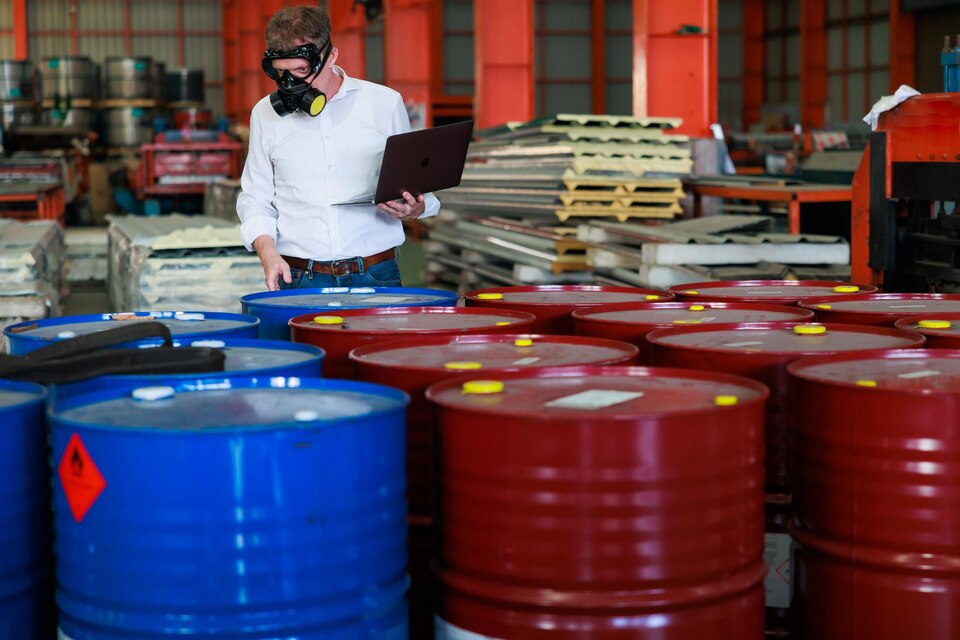What is Sulphonic Acid and What Are The Uses of Sulphonic Acid?

PTSA chemical, or Para-Toluene Sulfonic Acid (PTSA), is an essential organic compound widely used in chemical industries. It is known for its strong acidic properties and plays a crucial role as a catalyst in various industrial processes. In this article, we will explore what PTSA chemical is, its key properties, how it is manufactured, and why choosing the right PTSA supplier is important.
What is PTSA Chemical?
PTSA (Para-Toluene Sulfonic Acid) is an organic sulfonic acid with the molecular formula C7H8O3S. It is derived from toluene through a sulfonation process. PTSA is a strong acid that is widely used as a catalyst in organic synthesis, resin production, and pharmaceutical formulations.
Key Properties of PTSA Chemical:
- Highly Soluble: Easily dissolves in water, alcohols, and other solvents.
- Strong Acidic Nature: It is a stronger acid than many mineral acids, making it useful in catalysis.
- Stable Compound: PTSA is chemically stable, which increases its usability in different industries.
- Non-Volatile: Unlike some acids, PTSA remains stable at higher temperatures.
How is PTSA Chemical Manufactured?
The production of PTSA chemical involves a process called sulfonation, which modifies toluene by introducing a sulfonic acid group. Here’s a step-by-step overview of its manufacturing process:
1. Sulfonation of Toluene
- Toluene (C7H8) reacts with sulfur trioxide (SO3) or chlorosulfonic acid (HSO3Cl) in a controlled environment.
- This reaction produces Para-Toluene Sulfonic Acid (PTSA) along with small amounts of other sulfonic acid isomers.
2. Purification Process
- The crude PTSA undergoes purification to remove unwanted by-products and impurities.
- Distillation or crystallization is used to obtain high-purity PTSA chemical.
3. Drying and Packaging
- The final purified PTSA is dried to remove any residual moisture.
- It is then packed in solid (crystal) or liquid form based on industrial requirements.
Uses of PTSA Chemical in Various Industries
1. Catalyst in Chemical Reactions
PTSA is widely used as an acid catalyst in esterification, polymerization, and alkylation reactions. It helps speed up chemical processes without being consumed in the reaction.
2. Adhesives and Resins Production
- PTSA is used in manufacturing phenolic resins, epoxy resins, and adhesives.
- It enhances the curing process, improving the quality of final products.
3. Pharmaceutical Industry
- In drug synthesis, PTSA chemical is used to produce active pharmaceutical ingredients (APIs).
- It aids in the formulation of various medicines and intermediates.
4. Dyes and Pigments
- PTSA is essential in textile dyeing and pigment production.
- It improves color fixation and enhances the brightness of dyes.
5. Electroplating and Metal Treatment
- Used in electroplating solutions to improve metal surface adhesion.
- It prevents corrosion and enhances durability in industrial applications.
6. Food and Beverage Industry
- PTSA is used in food additives and processing agents, though in strictly regulated quantities.
- It acts as a stabilizer in some food-grade chemicals.
Choosing the Right PTSA Supplier for Your Needs
When sourcing PTSA chemical, selecting a reliable PTSA supplier is crucial to ensure quality, consistency, and purity. Here’s what to look for in a supplier:
✅ High-Quality Standards: Ensure the supplier follows international quality certifications like ISO and GMP.
✅ Purity and Consistency: The PTSA chemical should be free from unwanted contaminants.
✅ Competitive Pricing: Look for suppliers who offer cost-effective solutions without compromising quality.
✅ Reliable Supply Chain: Ensure the supplier can handle bulk orders and provide timely deliveries.
✅ Customer Support: A good PTSA supplier should provide technical assistance and product documentation.
Final Thoughts
PTSA chemical is a highly versatile compound used in various industrial applications, from pharmaceuticals to adhesives and resin production. Understanding its manufacturing process helps industries choose the right PTSA supplier for their needs. Whether you're in the chemical, pharmaceutical, or manufacturing sector, sourcing high-purity PTSA chemical ensures efficient and high-quality production.
Most Popular
- Methylcobalamin B12 Injections: Boosting Energy and Health
- Born X Raised: Redefining Streetwear with Authentic Style
- Revolutionizing Indian Education: A Closer Look at Modern Universities and Their Role in Shaping Future Leaders
- The Impact Of Social Media Marketing For E-Commerce Growth
- Why Businesses Consider SMD LED Screen Display for Advertising?
- Securing Aquarium During Home Shifting with top Packers and Movers in Vadodara



0 Comments
No Comments Found
LEAVE A REPLY
Your email address will not be published